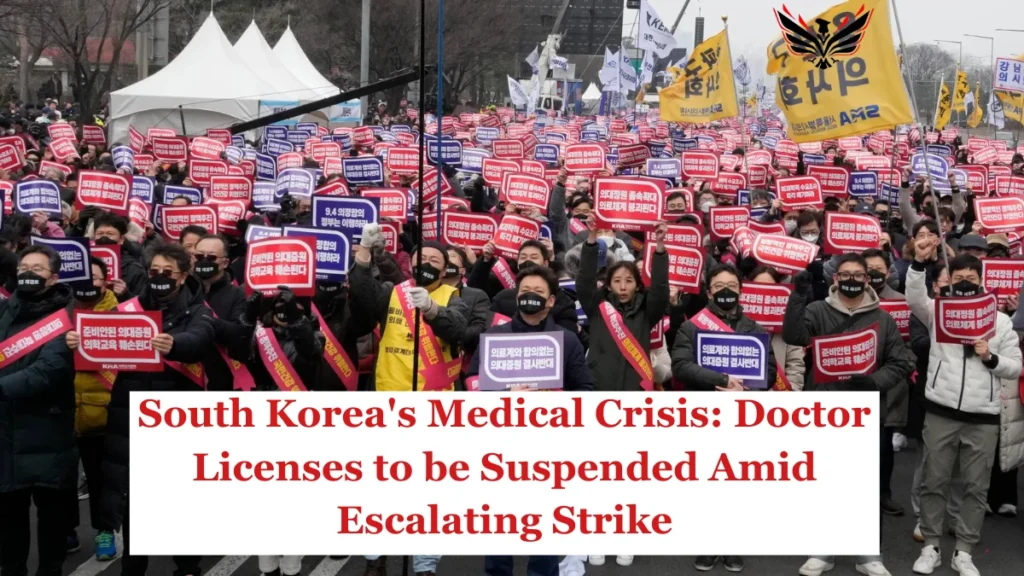South Korea’s health minister announced plans to initiate hospital inspections as part of efforts to address the ongoing walkout by trainee doctors who oppose government proposals to expand medical school admissions.
The walkout, which commenced on Feb. 20 and involves approximately 9,000 resident and intern doctors, has disrupted medical services, leading to the postponement of surgeries and treatments and placing strain on emergency departments.
The government had previously cautioned protesting trainee doctors about potential consequences, including administrative and legal penalties such as the suspension of medical licenses, fines, or even imprisonment if they failed to return to work by the end of the previous month.
Health Minister Cho Kyoo-hong emphasized the government’s determination to enforce these measures, stating that inspections would be conducted at hospitals to identify non-compliant trainee doctors and take appropriate action in accordance with the law and established principles.
Cho highlighted the potential repercussions for doctors who choose to continue the walkout, warning that their actions could negatively impact their future career prospects. However, he also acknowledged that the government would consider mitigating circumstances for doctors who decide to return to work, suggesting a degree of flexibility in the enforcement of penalties.
Vice Health Minister Park Min-soo elaborated on the government’s stance, indicating plans to suspend the medical licenses of approximately 7,000 trainee doctors who have participated in the walkout. Meanwhile, concerns among patients outside a major hospital in Seoul underscored the urgency of resolving the standoff. Patients expressed worries about potential disruptions to their treatment and urged both doctors and the government to engage in dialogue to achieve a swift resolution.
One patient, identified only as Song, emphasized the importance of doctors returning to work promptly to reassure patients and their families, underscoring the critical role of effective communication and collaboration in resolving the ongoing crisis. Another patient, Lee Hye-ji, voiced concerns about the potential consequences of prolonged disruption to medical services, particularly for individuals with serious health conditions like renal dialysis.

